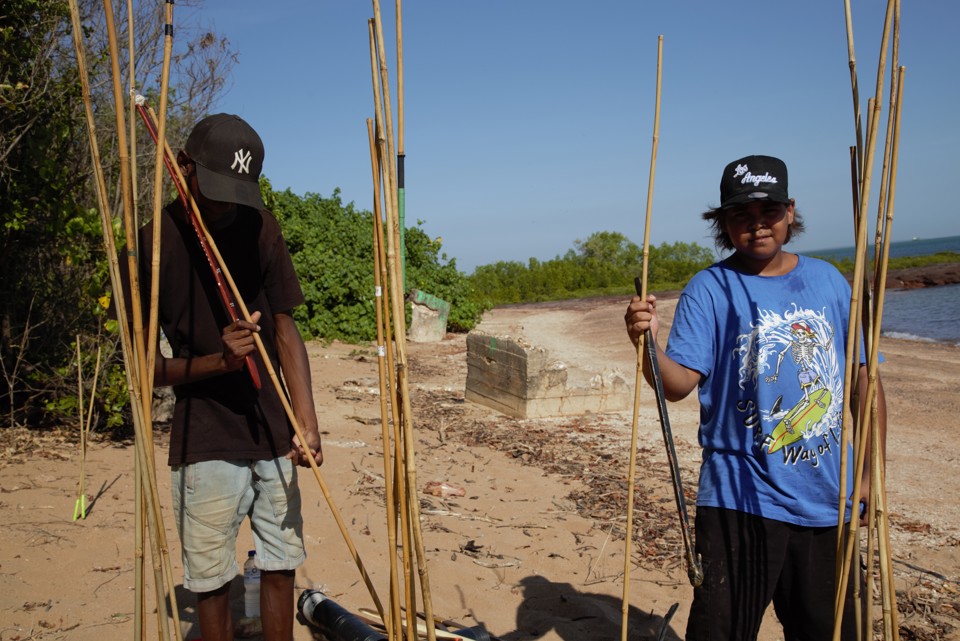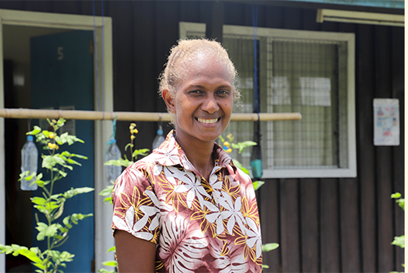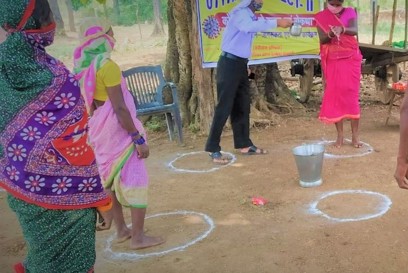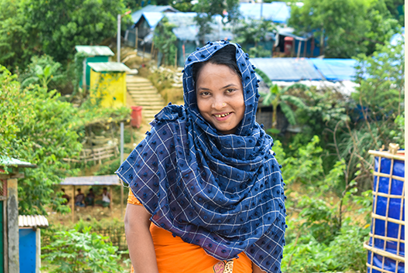The International Day of the World's Indigenous Peoples is commemorated each year on the 9th of August in recognition of the first meeting of the United Nations Working Group on Indigenous Populations in 1982.
This working group drives international recognition of the rights, challenges, and achievements of indigenous populations worldwide. Its founding is important milestone in galvanising governments, as well as aid and development agencies such as Caritas Australia, around culturally sensitive approaches to advancing the rights of indigenous people.

Janice is a traditional dancer who lives on Jawoyn country in Arnhem Land, Northern Territory. Photo: Richard Wainwright/Caritas Australia
A global picture of indigenous populations
To be indigenous means to have historic, cultural, and spiritual links to land that pre-date colonisation. That term applies to more than 5,000 distinct groups worldwide, making up a population of 476 million people across 90 countries, and accounting for 6.2 per cent of the global population.
Indigenous populations often face a lack of political representation and/or consultation over their own development. In turn, they are three times as likely to be living in extreme poverty and account for 19 percent of the world’s extreme poor. Life expectancies are also around 20 years lower when compared to non-indigenous populations.
More positively, indigenous populations are increasingly globally recognised for their rich and varied cultures and unique connections to nature. They speak over 5,000 of the world’s 7,000 languages and are responsible for preserving over 80 percent of the world’s global biodiversity, despite only living on a quarter of the land.
Understanding indigenous populations here in Australia
Australia’s indigenous population of Aboriginal and Torres Strait Islander people have maintained a connection to the land they live on for over 65,000 years making them the oldest living continuous culture on earth. There are just under one million Aboriginal and Torres Strait Islander people in Australia. Almost 3 in 4 recognise an area of Australia as their homeland or traditional country, but just 1 in 4 live on their homeland.
At the time of colonisation 250 languages were spoken, now just 123 are in use, with just 12 spoken fluently. Alongside the erosion of culture and separation from country, significant differences exist between the lives of indigenous and non-indigenous people. Median incomes are 60 percent lower for indigenous people, stretching to 85 percent lower in remote areas. This results in 40 percent living without essentials compared to just 11 percent of non-indigenous people.
Indigenous Australians also make up just 0.7% of senior leadership across Australian organisations, but 35 percent of incarcerated people. These figures are astonishing given they constitute 3.8 percent of our national population. However, there are some moves being made in the right direction with representation of indigenous Australians in government sitting at 4.8 percent as of 2023.

Dialysis patient Rosie paints while spending time at the Purple House. Photo: Emma Murray/Caritas Australia

Antonio and Israel participate in spear throwing as part of a Grassroots Youth Engagement cultural activity. Photo credit: Tara Harvey for Caritas Australia.
Culturally sensitive development approaches
Representation, such as seats in government, is essential because it enables self-determination. It is something all indigenous populations have a right to, and an important part of both Catholic Social Teaching and modern approaches to development work.
In the development world it is called localisation. This is defined as giving more decision-making agency, funding, leadership, and power to local people. It is the principle of advocating for community-led development because it has the dual function of increasing the cost efficiency and effectiveness of programming, while also working to dismantle unbalanced and often paternalistic global power structures.
From a Catholic Social Teaching perspective, it is called subsidiarity. This the premise that a central authority should have a subsidiary function, performing only those tasks which cannot be performed at a more local level. In practice it means all people have the right to participate in decisions that affect their lives, with the people closest and most affected by the issues and concerns of the community being the ones making decisions
In turn, Caritas Australia is committed to working in close partnership with First Australian-led programs. We do so because programs that are First Australian-led work to undo the pain and damage wrought by Australia’s long history of making decisions for our Aboriginal and Torres Strait Islander peoples. We consider ourselves privileged to walk hand in hand with our First Australian partners and are grateful for the continued opportunity to learn from their rich cultural, spiritual, and environmental practices.
















